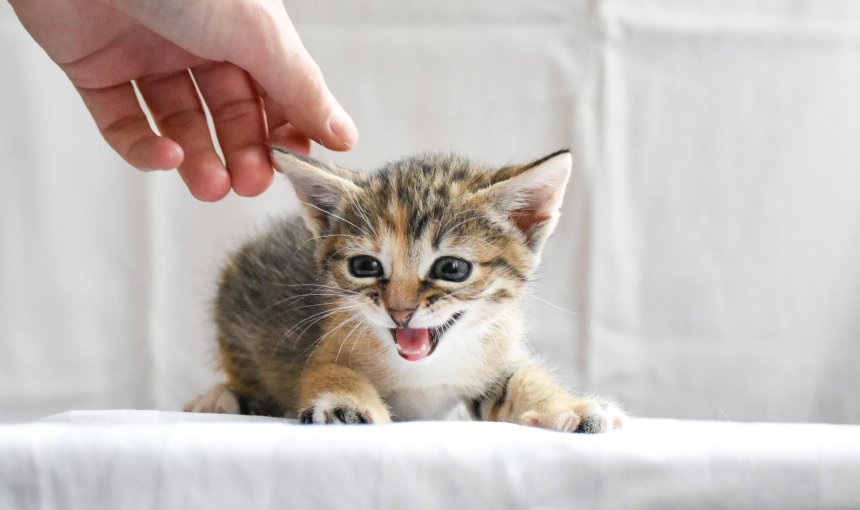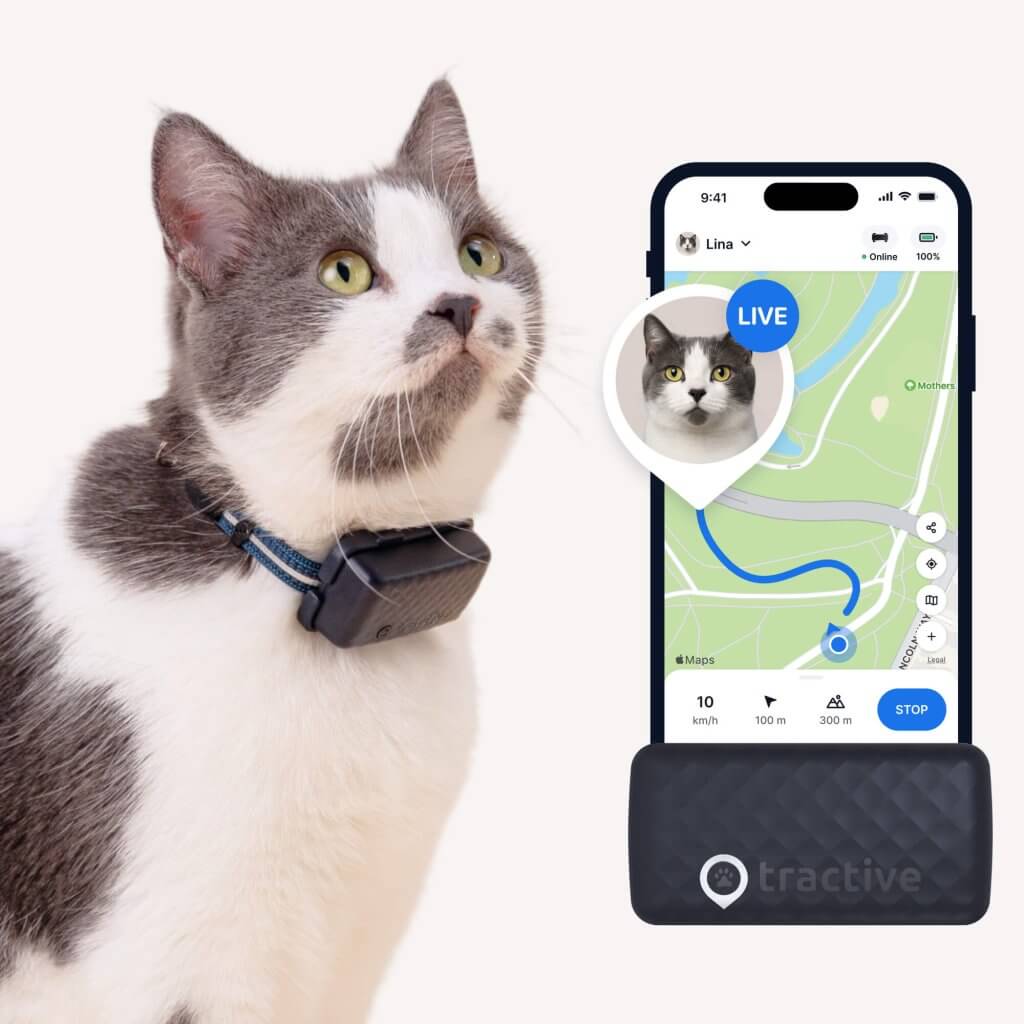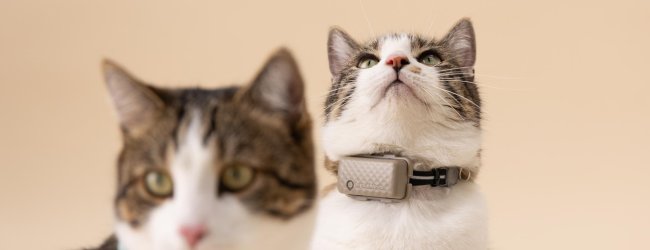Why Do Cats Meow? What Underlies This Behavior
It could be to get your attention, interact with the kitty community, or indicate something's wrong.

Has your cat ever stared you down and let out a meow? Or serenaded you with their midnight melodies? If you’ve ever wondered why, we’ve got you covered. In this post, we’re going to cover some of the reasons why cats meow and why your cat might be meowing more than normal.

Find out where your cat spends their time.
Read more- So why do cats meow in the first place?
- Why do cats meow at kittens?
- Why is my kitten meowing?
- Do cats meow at other cats?
- Why do cats meow at night?
- How to manage your cat’s meowing
- How exploring the outdoors can help your cat redirect their energy
- Types of cat meows you might come across
- Health concerns: When meowing becomes excessive
- Navigating your cat’s communication – one meow at a time
So why do cats meow in the first place?
Cats meow primarily to communicate with you, their parent. It could be:
- A means to get your attention
- A way to show you they’re hungry or want to go outside
- Their way of showing you affection
- How they interact with other animals
- A way of indicating something’s wrong – especially when they’re feeling anxious or in pain
Interestingly, cats don’t typically meow at other cats. Meowing is a form of communication they’ve adapted to specifically communicate with us humans – and, on occasion, kittens. If your cat learns that you pay them more attention when they meow, they might meow persistently. It’s up to you to find a balance between addressing their needs and not responding to every meow.
Why do cats meow at kittens?
Mother cats meow to call kittens when it’s time to eat or when they need to be cleaned.1 They might also meow at their kittens to comfort them when they’re upset or scared. Meowing strengthens the bond between Mama cat and her kittens. It allows them to communicate their needs and take care of their young.
Why is my kitten meowing?
Kittens meow from the moment they’re born. It’s how they communicate with their mother and siblings. As they learn from Mama cat, they might meow to indicate that they’re hungry or need to be cleaned or are feeling uncomfortable. As kittens grow older, they grow more independent – but old habits die hard. So they continue to meow to communicate with you, their primary caregiver.
Do cats meow at other cats?
In general, no – cats communicate with their fellow felines using their body language, scent marking, and other non-verbal cues.2 You might find your cats having a lengthy conversation with trills, chirps – and sometimes, even growls or hisses. But meowing, yowling, and even crying are ways your cat has evolved to communicate with humans as a whole.
Why do cats meow at night?
If you’ve been woken up more than once with your cat’s midnight melodies and wondered – why do cats meow at night? – you’re definitely not alone. Here are a couple of reasons why your cat might be doing so in the first place.
- Nocturnal instincts.
Cats are crepuscular, i.e. most active at dusk and dawn. Their wild ancestors usually hunt around these times. So meowing around night could be a way of expressing these instincts. - Extra energy.
A cat that’s been napping all day might simply have extra energy to burn in the evenings. - Attention seeking.
Your cat might primarily meow to get your attention – to play together, get fed, because they’re bored, lonely, or to just enjoy your company. - Environmental changes.
Cats might meow at night to unfamiliar noises, like another cat in their neighborhood (or territory) or animals scurrying around. Your outdoor cat also has a territory to hunt, patrol, and defend. So they might vocalize more so at night to show territorial dominance.
How to manage your cat’s meowing
Just like human babies, cats have different meows or chirps when they’re hungry, communicating with other cats, bored, anxious, want to be let in (or out) or just want some company. So take a little extra time to pick up on their different sounds and get used to them first.
Create a consistent routine
Cats respond positively to a well-structured routine. A predictable daily schedule can help calm them. Cats might meow excessively when anxious – but you can help them feel more comfortable if you feed them, play with them, and hang out with them at regular times.
For example, if you create a calm and peaceful environment for your cat, especially at night, it can help reduce these disturbances. Or you could play with them to get some exercise before sleep time and tire them out.
Provide an enriched environment
Much like dogs, cats need to stay both physically and mentally active to stay happy and healthy. So make sure your cat has enough toys, scratching surfaces, cat-friendly houseplants, and plenty of time with you to stay engaged.
Remember – not every meow is an emergency!
Your cat might even be meowing out of boredom. So if you’ve learned the subtle differences between when they’re hungry or just bored, you’ll also learn when to respond and when not to. If you end up responding to every meow, your cat might get used to you giving in to their demands no matter what time of day it is. So if they have a habit of meowing at night, we’d recommend you create a consistent nighttime routine that helps them understand when it’s time to be active and when it’s time to relax and sleep.
How exploring the outdoors can help your cat redirect their energy
Many cat parents tend to keep their cats indoors – but they’re natural hunters and explorers. As a result, they benefit tremendously from outside time. Even exploring your backyard helps keep their hunting instincts happy. Keeping your cat indoors for too long can make them feel anxious – which might cue the excessive meowing.

Track your cat wherever they go
See where they are in real-time, no matter how far they roam. Discover their territory. Get alerted if they go too far. Track activity, sleep, and receive health alerts if your cat’s activity changes. Keep your feline friend healthy and safe.
Types of cat meows you might come across
- The ‘Hello!’ meow.
Your cat might meow at you to say hello – usually a short, sweet vocalization that indicates they’re happy to see you. It’s how they acknowledge your presence when you return home or enter a room. - The ‘I’m here’ meow.
Sometimes cats meow to let you know it’s around or in your vicinity – it might be linked to how they indicate a sense of ownership or territoriality over their environment. - The ‘I’m hungry!’ meow.
Cats meows might sound more demanding and insistent when they’re hungry. - The ‘Ugh!’ meow.
Some cats let out a loud, insistent meow when frustrated or unhappy with a situation. It might signal that they’re upset and might need a little space – and plenty of cuddles from you after.
Health concerns: When meowing becomes excessive
We’ve covered a few situations where your cat might meow as a result of anxiety – changing schedules or staying indoors too much. Excessive meowing could be a sign that something’s wrong with their health and wellbeing. So keep an eye out for changes in your cat’s meows – their tone, volume, or how often they do it.
If you notice a sudden and significant change in your cat’s meowing or other aspects of their behavior, it’s a good idea to get in touch with your local vet to rule out any health issues. Your cat’s excessive meowing could signal cognitive decline, health conditions like thyroid problems or a urinary tract infection (UTI), or even pain from chronic conditions like arthritis.6
Your vet might run a few tests to make sure that your cat is doing well physically. Plus, they can help guide you in the right direction if the cause of your cat’s meowing might be due to psychological reasons.
Navigating your cat’s communication – one meow at a time
Your cat’s meows are a beautiful and complex form of communication that’s evolved as a result of their gradually warming up to humans. It might be due to their wanting attention, showing the neighborhood cats who’s boss, because they’re hungry, or are in pain of some kind.
Meowing is a fundamental part of how your cat communicates. At the same time, you also need to ensure you’re not responding to every little meow. Your cat will pick up on it pretty quickly!



